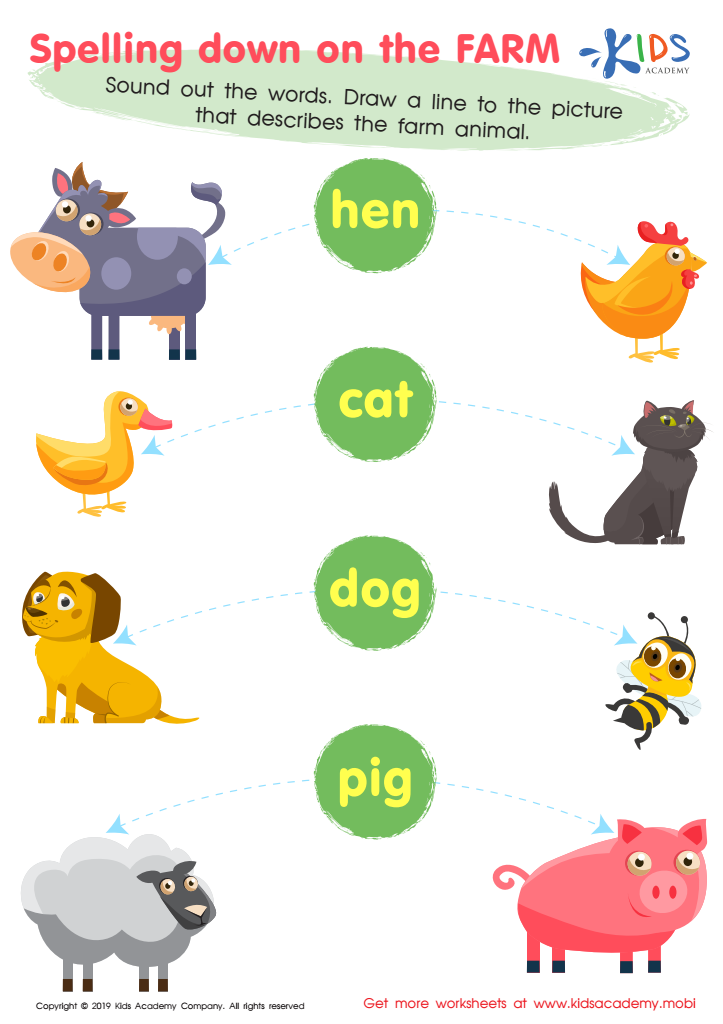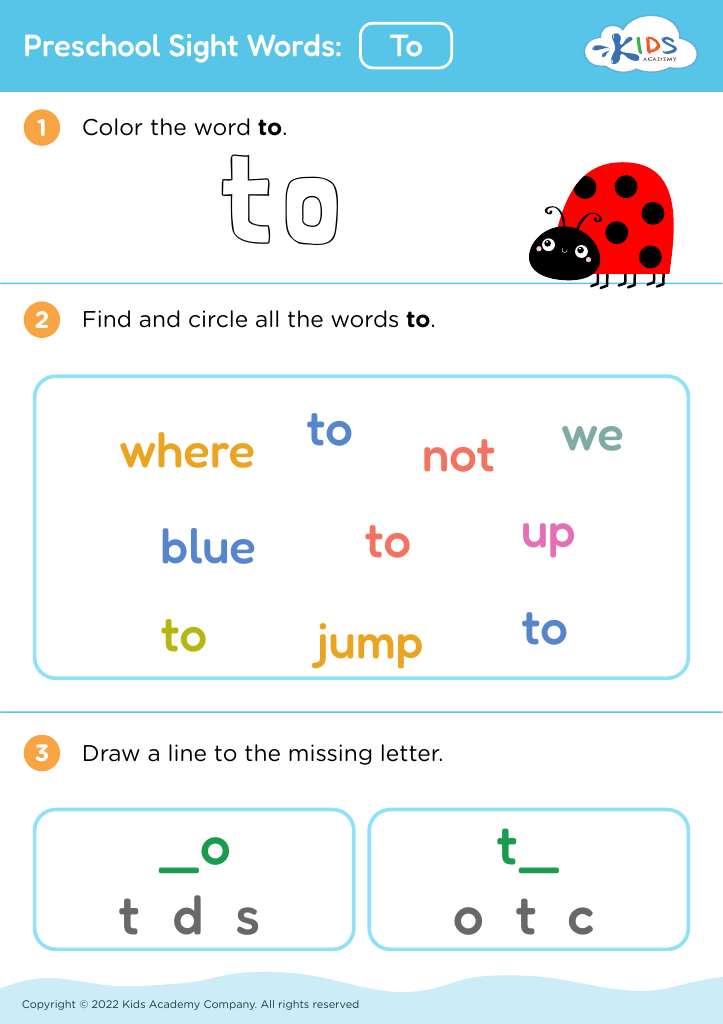Word association skills Reading Worksheets for Ages 3-4
3 filtered results
-
From - To
Enhance your child's early literacy with our engaging Word Association Skills Reading Worksheets designed specifically for ages 3-4. These fun and educational activities help young learners develop critical thinking and vocabulary skills by connecting words with images and concepts. Each worksheet encourages creativity and boosts reading comprehension through interactive exercises that are both playful and educational. Parents and educators can easily access and print these captivating worksheets, making learning enjoyable and effective at home or in the classroom. Start building your child's foundation for language and communication skills today with our comprehensive collection of word association resources!


Spelling Down on the Farm Worksheet
Word association skills are crucial for young children ages 3-4 as they lay the foundation for future literacy development and overall communication abilities. When parents and teachers focus on enhancing these skills, it aids in vocabulary expansion and comprehension. Word association involves connecting words with their meanings, synonyms, antonyms, or related concepts. For instance, associating ‘dog’ with ‘bark’ or ‘pet’ can help children understand language in context and recognize relationships between words.
Developing word association skills at this age also boosts cognitive development. It encourages critical thinking as children learn to categorize and make connections, building neural pathways in the brain. Moreover, strong early language skills can lead to greater self-confidence in communication, enabling kids to express their ideas effectively.
Additionally, fostering a love for reading during this stage can ignite children’s curiosity and imagination. Engaging parents and teachers in activities such as storytelling, rhyming games, and word puzzles can make learning fun while reinforcing these critical skills. In essence, prioritizing word association not only enhances children's reading abilities but also establishes a solid groundwork for academic success as they transition into more advanced literacy tasks in later years.
 Assign to My Students
Assign to My Students















